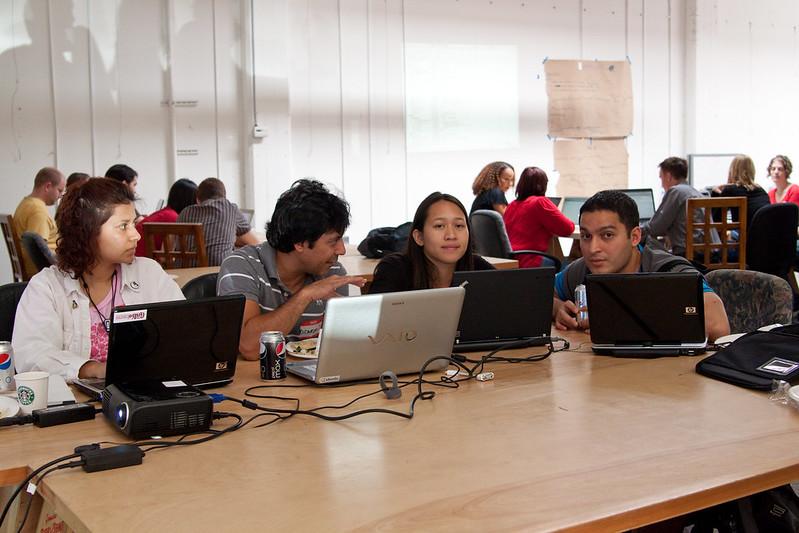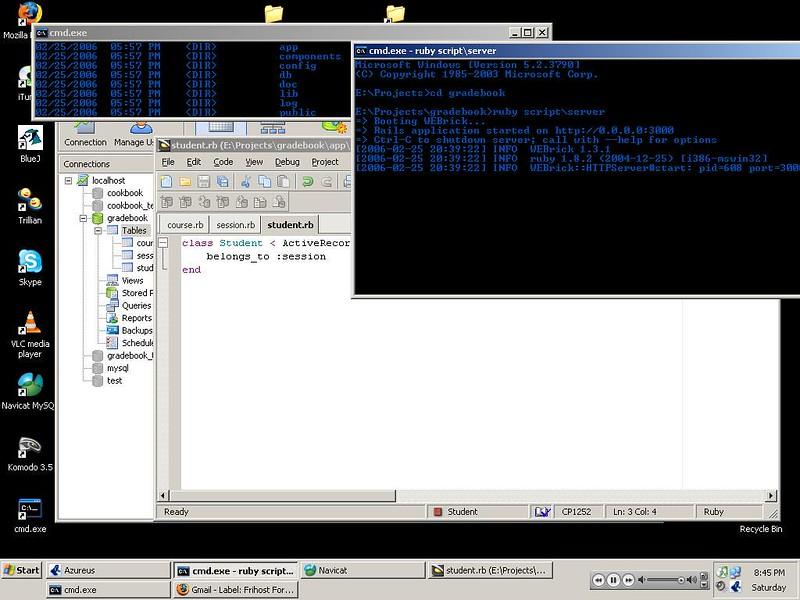Ruby on Rails is still popular in web development, even though it’s 19 years old (as of 2023). So, developers working on this framework enjoy benefits from it.
However, no career is perfect, and this post about the advantages and disadvantages of being a Ruby on Rails developer will help you understand this job better.
Let’s dive into it for details!
Overview
A Ruby on Rails developer is a person who specializes in creating web apps using a framework called Ruby on Rails. Ruby on Rails (or Rails for short) is a tool that helps developers build websites faster and easier.
These developers’ main job is to create the parts of a website by writing code using Ruby programming language along with Rails.
Besides knowing Rails, they understand HTML, CSS, and JavaScript. They are also good problem solvers, talk well with front-end developers, designers, and stakeholders, and follow best practices for writing clean and efficient code.

Now, if you are considering a job in Ruby on Rails development but don’t know whether it’s right for you, check out the following ups and downs of the job!
First, I will analyze the good aspects of this career, which are the main reasons why many developers choose to pursue it.
1. A Steady Job Market
Rails is a popular web development framework, and many companies, even big names such as SlideShare, Shopify, GitHub, Airbnb, and CrunchBase, use it to build their websites and apps. So, there are always jobs for Rails developers.
Besides, the career prospects in this field are good, with an expected 13% job growth between 2018 and 2028. So, you will still have many job opportunities for the next many years.
2. Adequate Salaries

The income of developers in general and Ruby on Rails developers in particular is generally higher than the industry average.
A Rails developer in the US can earn around $109,839 per year, while the average salary of all occupations is around $59,428 per year.
In this role, you can absolutely earn more, up to around $160,000/year, if you have more experience and advance to senior positions.
3. Flexible Career Advancement
Because Ruby on Rails is a versatile web development framework, it is easy to advance in your career. With experience, you can become a lead developer or architect. Then, you can explore project management roles or entrepreneurship.
You can also work remotely or as a freelancer if you are a Ruby on Rails developer. You can easily find these jobs on job boards or social networks.
4. Strong Community

One of the biggest perks of being a Ruby on Rails developer is the fantastic community that surrounds it. I find this community like a big family of developers who are always ready to help each other.
One thing great about the Rails community is how friendly and welcoming it is. No matter if you’re starting or have tons of experience, you’ll find support and guidance. It’s a diverse group, so everyone is encouraged to join and share their unique perspectives.
5. Developer-Friendly Framework
Ruby on Rails is one of the most developer-friendly frameworks because it uses the Ruby programming language, which is easy to read and write. So you can work quickly and understand the code easily.
Besides, Rails has many pre-made code components (gems) created by other developers and cover many different tasks. You can use these gems to save time and effort.

Next, let’s get to the downsides of this career: market competition can be fierce, and the framework may not always be the first choice for new and massive projects!
6. Market Competition
With the above benefits of this career, many developers pursue and are skilled in this framework, making it tough to find good jobs. Sometimes, there are even more developers than jobs available.
To stand out, you must keep learning and improving your skills constantly. You also need to explore other technologies or frameworks to make yourself more appealing to employers.
7. Less Popular In New Projects
It is true that Ruby on Rails is great for many web projects, but it’s not always the first choice for new, fancy projects.
Some companies prefer to use alternative languages and frameworks that offer the latest features, such as Node.js, Python with Django, or Golang, for their greenfield projects.
As a result, you can miss out on opportunities to work on the latest and most innovative projects unless you diversify your skill set.

8. Slow Performance In Massive Project
While Ruby on Rails is fantastic for quick development, it sometimes struggles with massive, high-traffic projects. Honestly, it’s not as fast as some other languages like C++ or Java.
In such cases, I must fine-tune database queries, use caching strategies, and sometimes re-implement critical parts of the app in a faster language. These give a slight performance boost but are still slower than other frameworks.
Should You Work In Ruby On Rails Development?
If you are interested in building websites and enjoy working with Ruby, Ruby On Rails development is an ideal career choice.
Besides your interests, think about your long-term career goals. Ruby on Rails can provide stability and opportunities, especially if you want to work on existing projects.
But if you aim for cutting-edge projects with new tech, you must diversify your skills instead of just mastering working on Rails.
Wrap Up
We’ve discovered the pros and cons of being a Ruby on Rails dev. I admit that this framework is easy to use, great for building websites, and has a helpful community. Plus, there are plenty of jobs with good salaries out there.
But it’s not all roses. There’s a bit of competition for those jobs, and if you’re into cutting-edge, super-fancy, massive projects, Ruby on Rails might not always be the first choice.
So, is it the right path for you? Comment down below!
